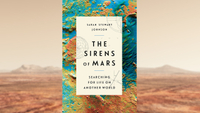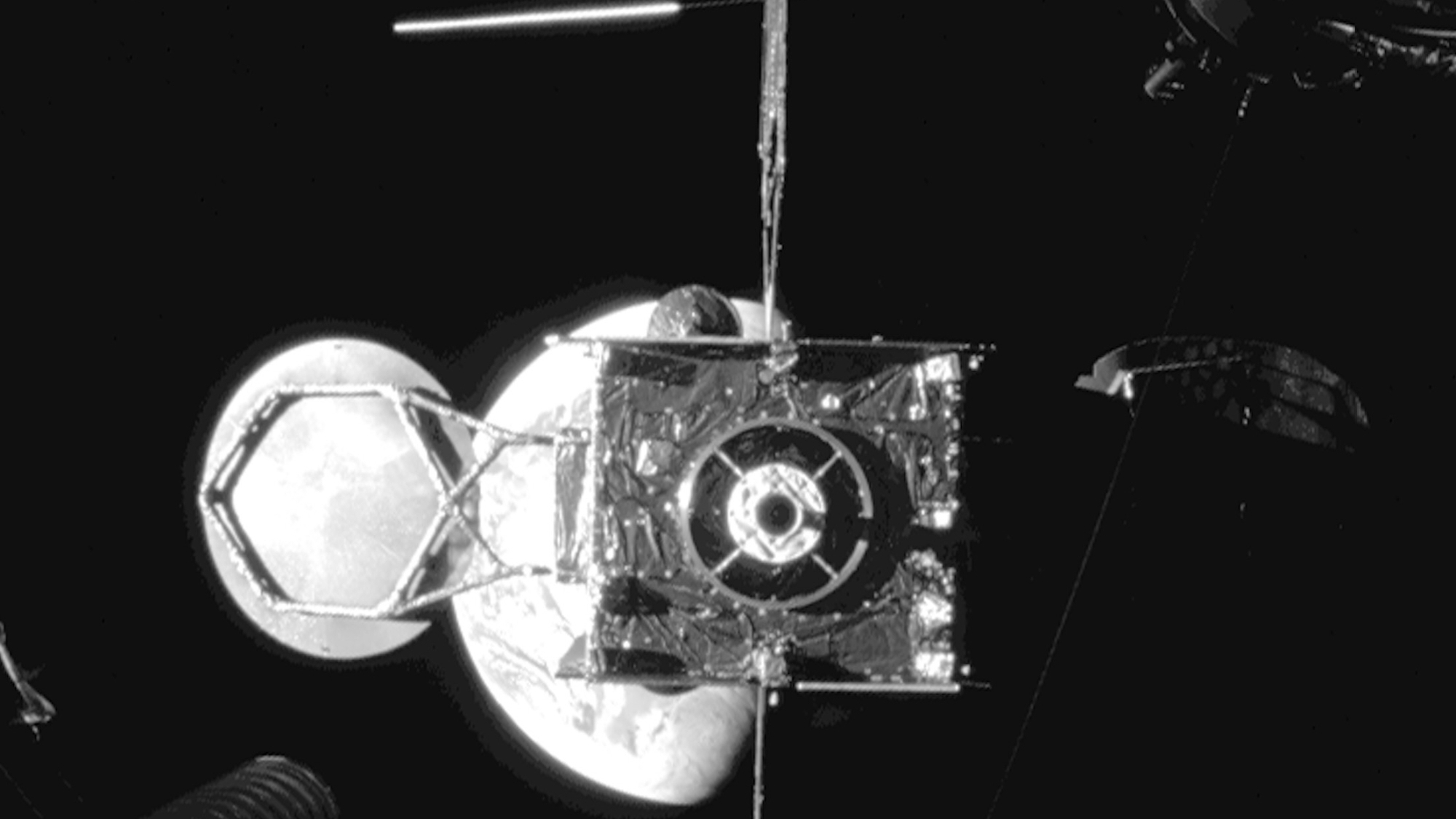'The Sirens of Mars' tells of the search for life on Mars
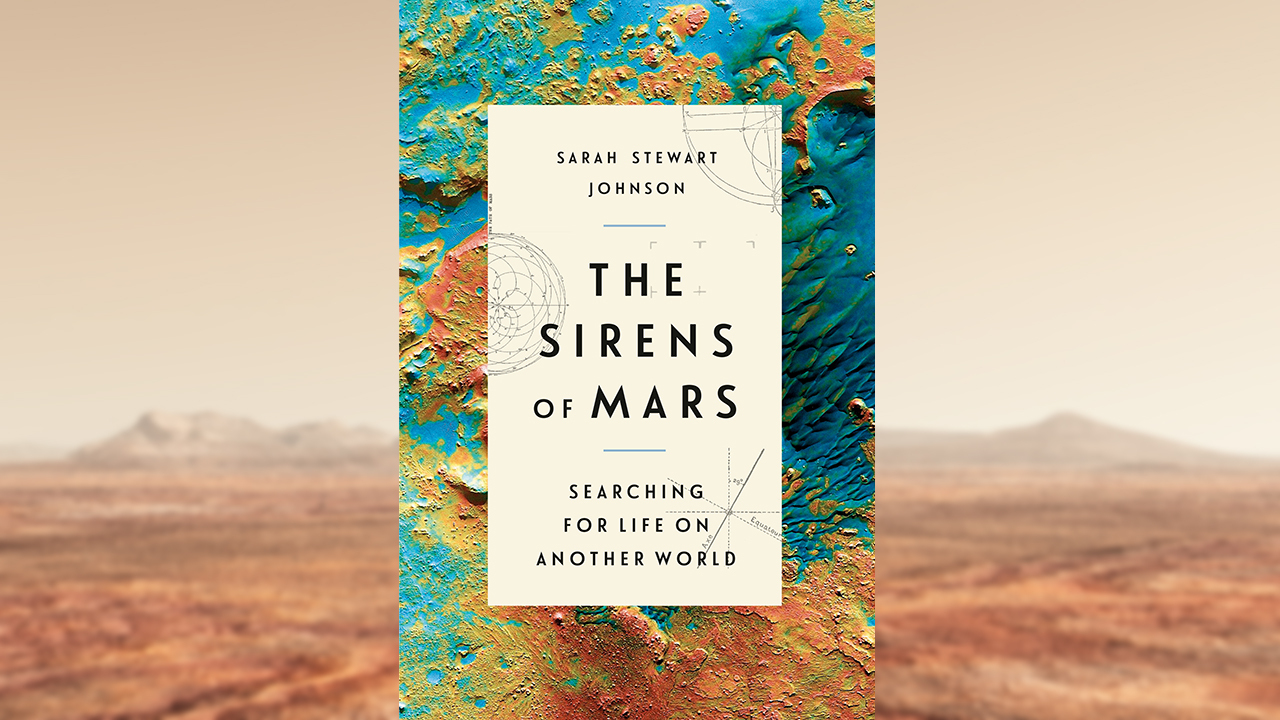
Studying Mars has been by turns tantalizing and heart-breaking, a constant dance as improving technology builds or dims hopes of finding life on our red neighbor.
Sarah Stewart Johnson, a planetary scientist at Georgetown University, shares the story of that quest and how the science of searching for life on Mars has progressed in her lyrical new book, "The Sirens of Mars: Searching for Life on Another World" (Crown, 2020). (Read an excerpt from "The Sirens of Mars.")
Johnson tells of how Mars turned from a red speck in Galileo's first observations to the harsh but vivid, recently static but geologically dynamic world that we know it as today, after decades of work by orbiters, landers and rovers. She also charts the tides of optimism and emptiness as humans have looked for life on our neighboring world.
Space.com talked with Johnson about the search for life on Mars in the past, present and future. This interview has been edited for length and clarity.
Related: Best space and sci-fi books for 2020
The Sirens of Mars: Searching for Life on Another World
Crown, 2020 | $28.99 on Amazon
Join planetary scientist Sarah Stewart Johnson on a journey to the Red Planet in the real-life search for life on other worlds.

Space.com: How did this book come about, and why did you want to write this particular book?
Sarah Stewart Johnson: The book is about the search for life on Mars, but it's not just the science of it; it's about our human relationship to the planet as well. There were just so many things that were poignant and beautiful and compelling about the endeavor that will never really find expression in the pages of scientific journals. That's a large part of why I decided to write the book: this idea that Mars deserved a different type of treatment, something that kind of captured the mystery and the wonder, and just of the entire quest.
Get the Space.com Newsletter
Breaking space news, the latest updates on rocket launches, skywatching events and more!
I would go to lectures and seminars and those types of things and I'd have my notebook and in the back, I would scribble down these things that I just thought were so interesting and compelling. And slowly those kind of came together and they became passages, and those passages became chapters, and then suddenly there was a book
Space.com: Can you talk about the decision to make it so personal?
Johnson: When I originally conceived of it, I was going to write a personal prologue. But as the narrative sort of moved along, I found that there were places where it felt like things resonated with me at this really personal level as well.
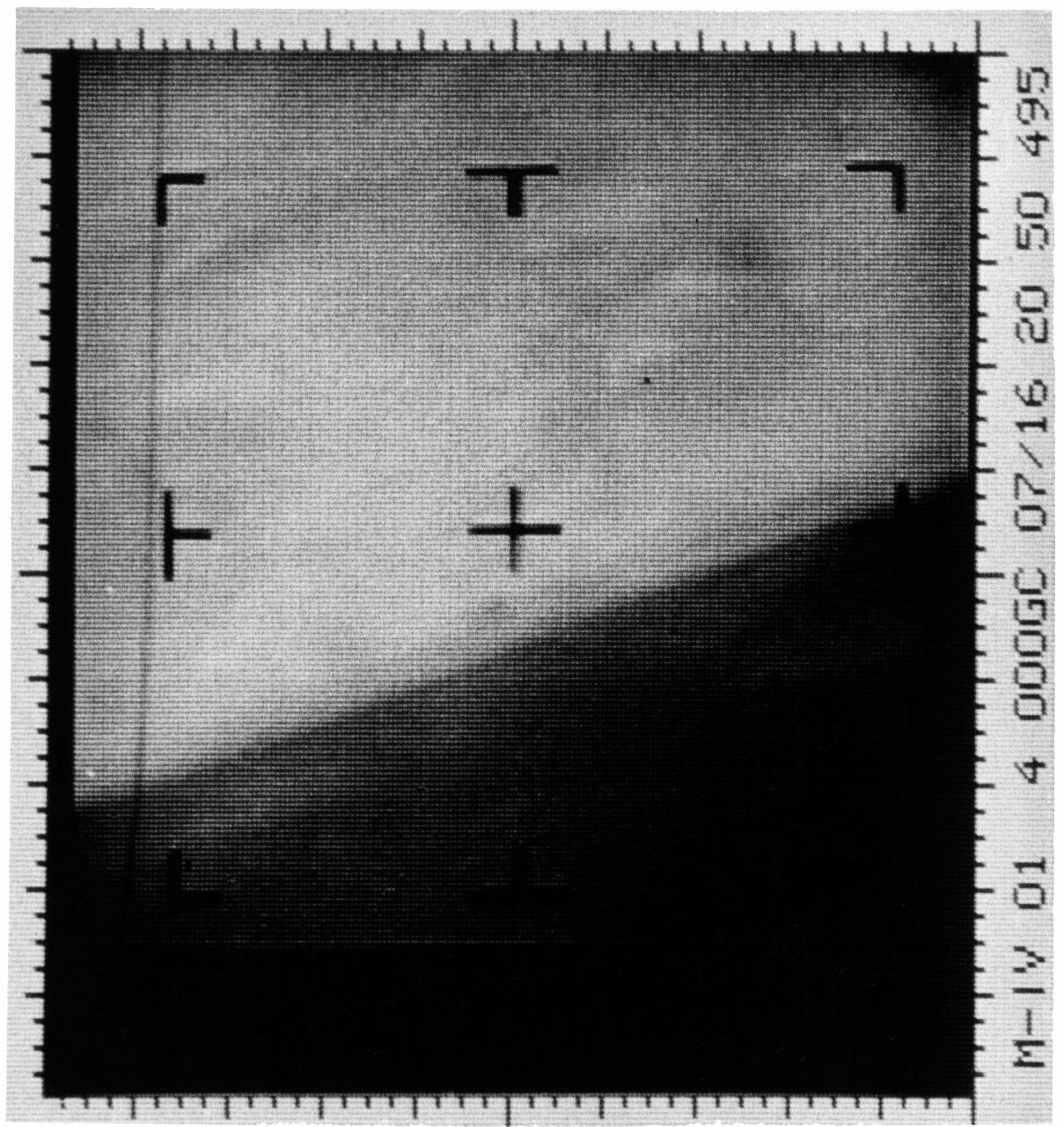
I open it with a scene of my dad when he was 18 years old [in 1965 when the first successful Mars mission, Mariner 4, flew by the Red Planet]. It just felt like, here he was, sort of every man, every human, watching this incredible thing unfold up in the sky. And it seemed like a nice way to open the book. Then there was another scene a few chapters later when I was 18 and we were actually returning to Mars for the first time in 20 years, and that seemed like a nice thing to add in.
Slowly, it just ended up being different things interwoven together, from my personal story and why I found Mars so endlessly fascinating, to the scientists that came before me and all of my predecessors and the lengths that they were willing to go to, to try to figure out if we're alone in the universe. And then there's also the science of it: how we get out of the darkness to a truer understanding of what this world really is. And so it all sort of blends together.
Space.com: What was the process of researching the book and choosing what to include like?
Johnson: I think something that really struck me was how so many Mars scientists have come from completely different walks of life … Folks came at this from all different backgrounds with all different initial thoughts — people that were really interested in wilderness or people that were really interested in benevolent civilizations. You sort of see this reflection in some ways of what they most longed for in their theories about Mars, and I just found that very poignant … It was a paring down; there are lots of people and lots of passages that ended up in the graveyard of text that didn't quite make it into the book …
I had this box filled with things that I would find when I was, in my spare time, thinking about the book — things like old letters or photographs, or scientific articles where you could really see scientists struggling with trying to understand something that is very evident today but wasn't in their historical period.
I still feel really moved when I look back through that box. It just seems like this collection of all of these individuals, and they brought all of their humanity to the project, and they were just all in in this way that was really, really amazing.
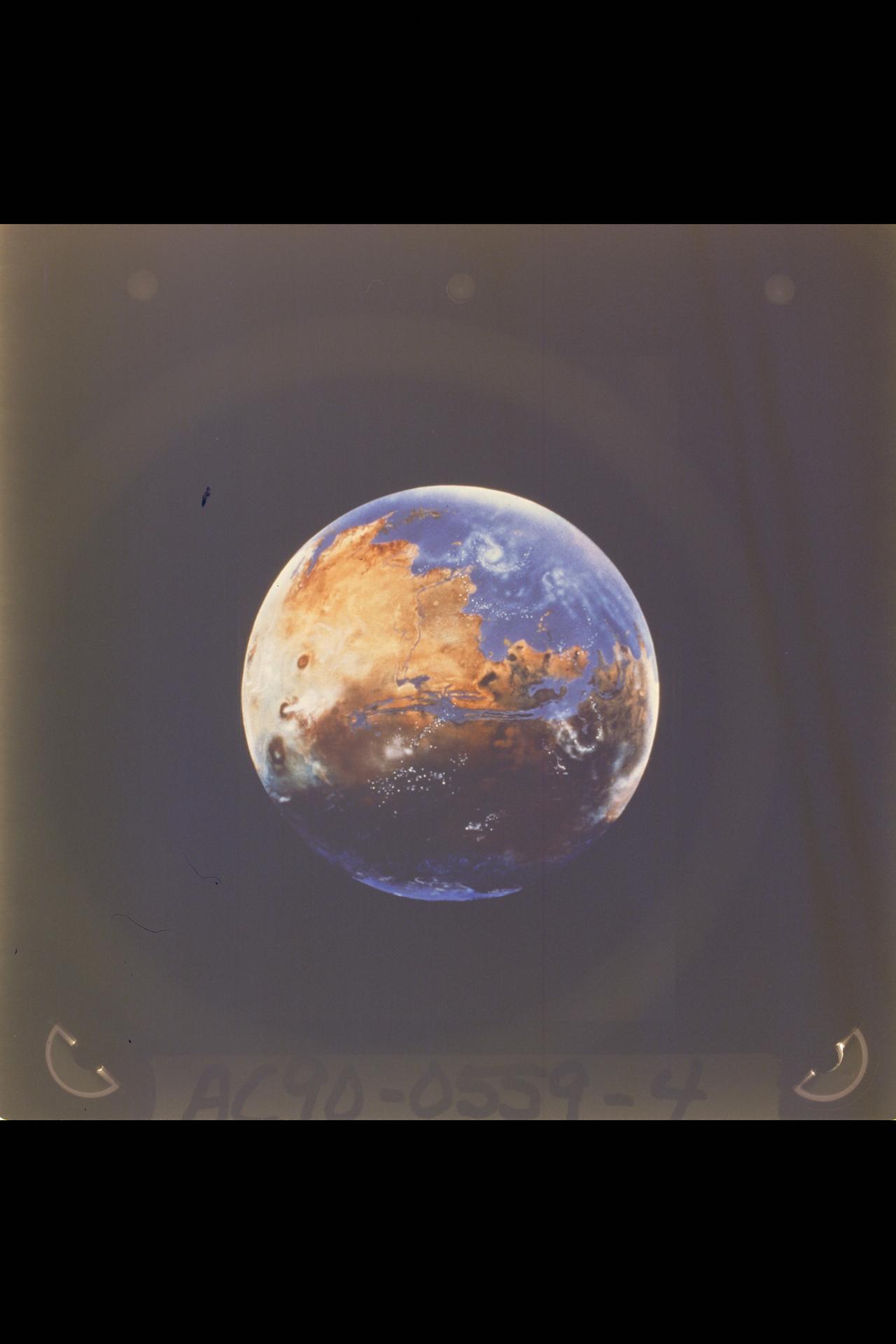
Space.com: Could you talk about one object in that box that particularly speaks to you?
Johnson: I think there's one that I've been thinking about more lately, perhaps because of this moment with everything going on in the world. There was one scientist named William Pickering, and on the eve of World War I, he began writing these weather reports from Mars from this high plateau in Jamaica.
You've got menace gathering across Europe and he is describing these ideas, that what he saw were belts of clouds that were sweeping the sky or the greening of the southern maria [basins]. He has these incredible descriptions in these weather reports of what he imagined was taking place on the planet, and he depicted it as this just complete wilderness.
It was following on the heels of [Percival] Lowell and all these people that had believed that there were canals on the surface of Mars, and he depicts it as this place that's free of suffering and of injustice and of difficulty. It's just a refuge almost; it's just weather and it's just vegetation … I think it was something that he most longed for — this world that was free from all of the horrible things that were happening in his world, on his planet.
Space.com: Is this a tricky book to be publishing right before the launch of NASA’s Mars 2020 mission?
Johnson: This project has really been percolating for a while … The book, in many ways, just filled pockets of spare time here and there … It seemed like a point where even though we didn't have the data [that the Perseverance rover will gather], that this would be a time where people might be curious about Mars. It's only every 26 months that the planets swing together on the same side of the sun, and it's a really exciting time for the Mars community with these three missions launching in the next couple of weeks.
Related: The search for life on Mars (a photo timeline)
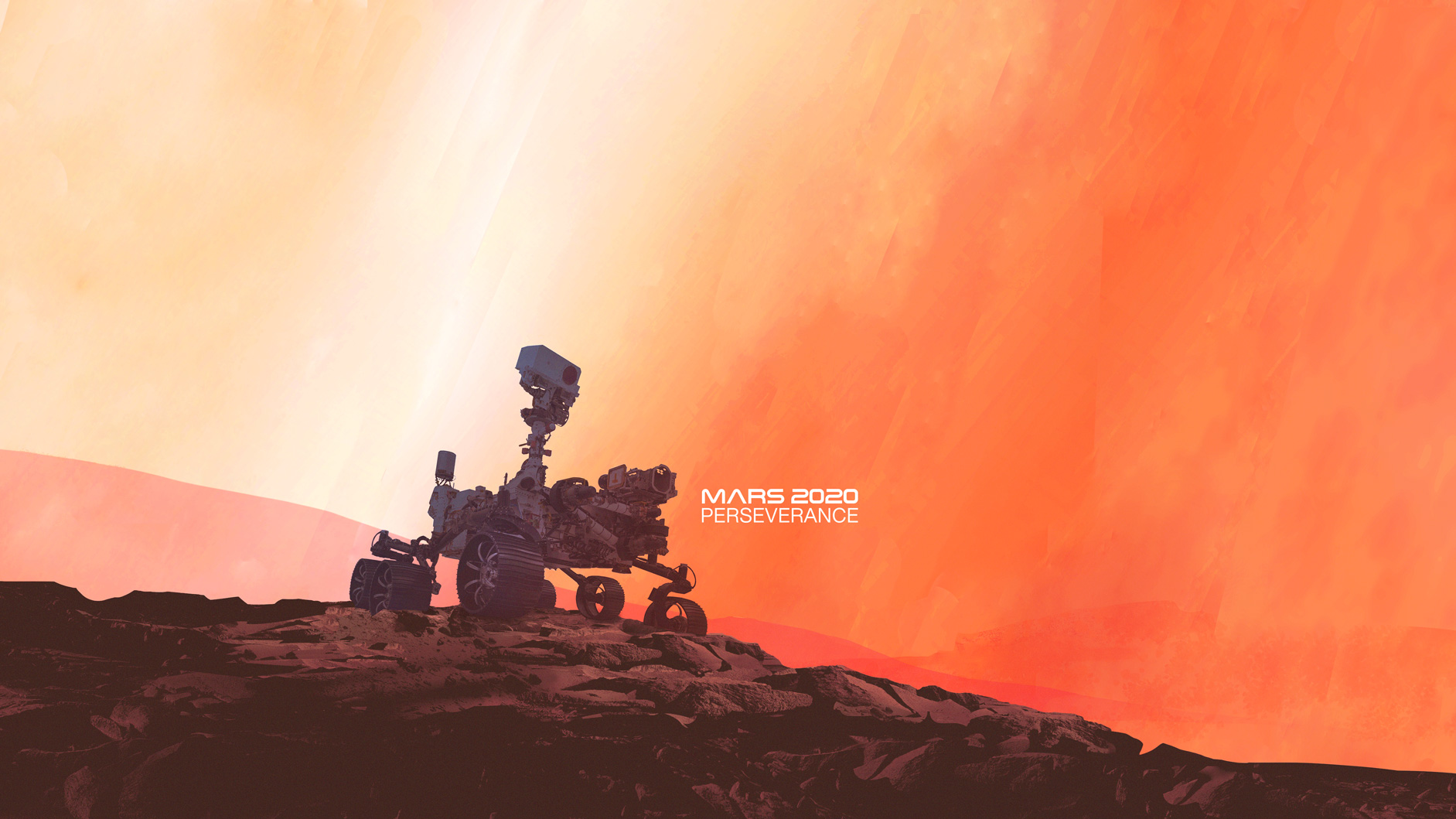
Space.com: Why is looking for life on Mars a valuable endeavor regardless of the result?
Johnson: Even the discovery of simple life beyond Earth, I think, really stands to make a tremendous impact. We've had these massive advances over the last decades, but biology is still this rather descriptive science. It's because we have this one data point: We've got life on Earth and we don't have a second data point.
Especially if we found evidence of a second genesis [a case where life arose independently of life found on Earth, rather than migrating between the two worlds], I just think it'd be as revolutionary as any breakthrough that's been made in terms of thinking about ourselves and our existence.
But I think that we do it for reasons that are beyond just the science. It's one of the things I tried to capture in the pages of the book, that there are these really deep questions associated with the search. It touches on, 'Why are we here?' and, 'Why is there something and not nothing?' and 'Did that something from nothing happen once, or did it happen time and again?' 'Are we alone in the universe?'
I think those are the kinds of questions that we're hardwired to ask as a curious species, as human beings.
Space.com: What do you hope readers take away from the book?
Johnson: I guess one of the things for me is that when you think about your life on a planetary timescale and in the context of this enormous universe that we're part of, I think it really makes clear just how short our time here is and how important it is to make the very most of it. I hope that readers can take away a new perspective on our place in the universe …
I'm hoping that the book is able to connect with folks from all different walks of lives to see this common entity in a new way.
Space.com: Do you think it's possible we'll hit the point at which scientists can confidently say there is no life on Mars, and if so what happens next?
Johnson: It's certainly possible there is no life on Mars, that we'll search and search and, like the moon, we can conclude pretty conclusively that that's it. But fortunately, there are lots of other targets, even in our own solar system, that are really exciting to think about …
All these other astrobiological destinations — Enceladus and Europa, and Titan's a place that we're really excited about in my laboratory. A lot of our work is trying to imagine life as we don't know it and how we might detect lifeforms that are almost inconceivable within the confines to their current thinking …
One of the things that I tried to write about too in the book is just this idea that Mars is our near neighbor. It's this harsh place, but it's right there. And even if we were able to find life, just right next door, right there, like it would immediately suggest that the universe is just teeming with different types of biology. And that biology, especially if it's a separate genesis, is just a consequence of energetic systems. And if it's happened again right here, then surely it's happened everywhere …
But I guess your main drive of the question was about, would it be sort of a disappointment? Or how would it fundamentally change the way we interact with Mars? What I've tried to do with the book is write a bit of a natural history of Mars, and I do think that the big question — is there life there, is there not — will have a big impact on how we think of the planet, and also how we move through the coming decades in terms of exploration …
Who knows what we will find, but that's the one of the great things about Mars. It's accessible, and we have developed so many tools and techniques where we can really do such good science on the planet, we can get there quickly and we can deploy really capable robots to do really capable, scientific, tremendously sophisticated science on the surface …
At some point, I think that we would be able to say we've looked at every nook and cranny and we can move on to another destination. We can continue this search deeper into our own solar system or to one of the tremendous gazillions of other planetary bodies that we've detected in the universe.
We can't be done.
You can buy "The Sirens of Mars" on Amazon or Bookshop.org.
Email Meghan Bartels at mbartels@space.com or follow her on Twitter @meghanbartels. Follow us on Twitter @Spacedotcom and on Facebook.
Join our Space Forums to keep talking space on the latest missions, night sky and more! And if you have a news tip, correction or comment, let us know at: community@space.com.

Meghan is a senior writer at Space.com and has more than five years' experience as a science journalist based in New York City. She joined Space.com in July 2018, with previous writing published in outlets including Newsweek and Audubon. Meghan earned an MA in science journalism from New York University and a BA in classics from Georgetown University, and in her free time she enjoys reading and visiting museums. Follow her on Twitter at @meghanbartels.
